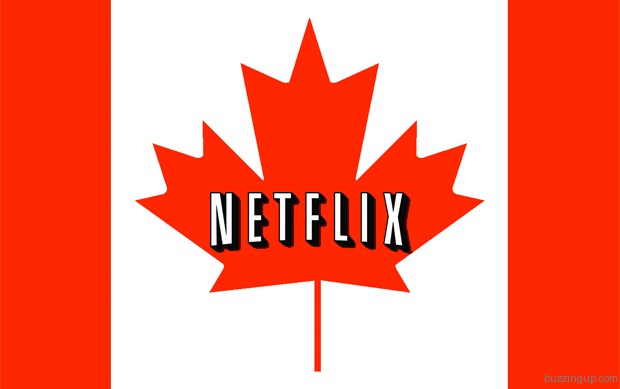There are a number of fascinating conversations about human interaction happening across the world right now, with a healthy concentration of them here in Canada:
- The Open Government/Open Data movement is talking about civic engagement and shared solutions
- HR folk are talking about cultural competency
- How do we support (or not impede) women leaders in the Private Sector? How do we encourage youth to get involved in politics?
- civic engagement groups like Samara and Why Should I Care are trying to address cultural biases within and surrounding politics/democracy at large
- as always, political people are trying to find new ways to connect with potential voters/donors
The list goes on and on.
Where do we get it wrong? How can we do it better? Toughest of all to ascertain - at what point between sending and receiving do we connect?
Note the word - barriers. As in, things that separate us. This is so fundamentally important to communication, it's maddening how few people understand this.
We talk about smart people and dumb people, lefties and righties, hawks and bleeding hearts, common sense and sheer idiocy, etc. They don't think like us. We are right, they are wrong. Why don't they just get it? Kids these days. Adults just don't understand what it's like to be young.
I can't deal with people that aren't like me. It's better to surround yourself with like-minded individuals, save yourself the headache.
Barriers.
Communication barriers aren't visible, aren't tangible, and by and large aren't external, either. They're internal.
There's a clear, logical, explainable reason for why we have such a hard time bridging the communication gap, why we place the blame for communication failure on others (or on ourselves) instead of focusing on finding ways to make the connection.
Ready for it?
Stigma is the internal barrier that prevents us from connecting with them - and vice versa.
If I think a distance is too far to walk, I can drive, take public transport or if I'm clever enough, event a new wheel to help me get there.
If I want to run a marathon but don't have the physical capacity, I can train - or, if that's not feasible for whatever reason, I can find other ways to participate.
The thing between us and accomplishing any goal is a barrier, and we understand this - education, practice, mentorship and play are all about finding ways to identify and overcome these barriers.
When it comes to communication, though, we don't see barriers - we only see personalities.
People who think like us, talk like us and often as not, look like us (gender, skin, uniform clothing) we can relate to - others, we can't. I can't talk with that person. They don't understand me.
But why?
As human beings, we are constantly categorizing things to identify what's a threat, what's an opportunity, and what doesn't matter. It's not something we do consciously, 95% of the time, but it happens regardless.
All animals do this. It makes sense to have this skill and for it to be autonomic; if you can't identify a threat rapidly and from a distance - say, a predator or a peer with a communicable disease - your chances of surviving aren't very good.
Here's where the disturbing good news comes in.
As with any process, we start with gross movements or gross assumptions; the more we practice, the more fine-tuned our abilities become. Where it comes to perception, we start off very, very simple - the world is a black and white place. Then we add shades of grey and focus on general groupings - everything that is black goes in one category - everything that's grey, in another, etc.
Can you tell the difference between a woman and a man at first glance? Can you tell a stranger from a familiar face? Here's a harder one - if you're not East Asian, can you readily distinguish individuals in a group of East Asians by their unique traits? Can you audibly identify the difference between Arabic and Somali, if you don't speak either language? Do you have trouble remembering foreign names?
Don't be ashamed if you do - you aren't alone.
We start with gross assumptions - if it looks like a man and acts like a man, it's a man. If she looks like an African person, sounds not like a European person, then it's probably an African person. We know what names sound like - we can recognize them when we hear them. Unless they're unusual or foreign names, which may not register as anything other than sound.
If it looks like a duck and sounds like a duck, then it's probably a duck. Or, if it looks like a predator or a sick person and acts like a predator or a sick person, maybe we should be wary.
Perception starts simple, with basic reactions, then grows in nuance over time. We go from syllogistic if A and B then C economics to a more nuanced, textured approach. Part of this process is a shift in focus from what's threatening (four legs and big - threat! Skin not like ours - threat!) to what's a point of common reference.
A transgendered person may make you uncomfortable, because they don't seem to fit your pre-existing cognitive categories. A burn victim may feel threatening to you, although burn isn't contagious. A mentally ill person who's acting wildly might seem like a threat, even if that isn't the case.
And conservatives and progressives might see each other as exact opposites, but the fact is they start from the exact same place.
Stigma is a focus on the differences; if you're always focusing on how an individual is either like you or not like you, you aren't judging them on their own merit. When we fight against bias, we give ourselves the space to consider why we feel a certain way or what, separate from our feelings, is actually being presented.
What do we encourage people to do in the world of work? Be like the people who are hiring. What do we tell communicators? Speak as simply as possible.
But what do we tell our kids? Practice. Discipline. Veggies are good for you. You won't know unless you try.
Humanity is enormously complex in its diversity; it's a skin we are slowly growing into. We have come from a place of simplicity of thought and communication and, to be honest, we like things simple.
Diversity is strenuous.
But it doesn't have to be a barrier. If anything, diversity of genes and ideas is an opportunity - infinite combinations through infinite diversity means an infinite range of options, which are helpful in the long run.
Not in the short-run, though. When the pressure is on and the resources are scarce, we are competitive and focused more narrowly on what is useful, threatening or not.
But we're not here for the short haul, and there isn't anyone coming to relieve us. We're in this together for the long haul.
Which is why the conversation keeps moving in fits and spurts towards common ground.
We're going to find we have all the time in the world for it.







.jpg)











